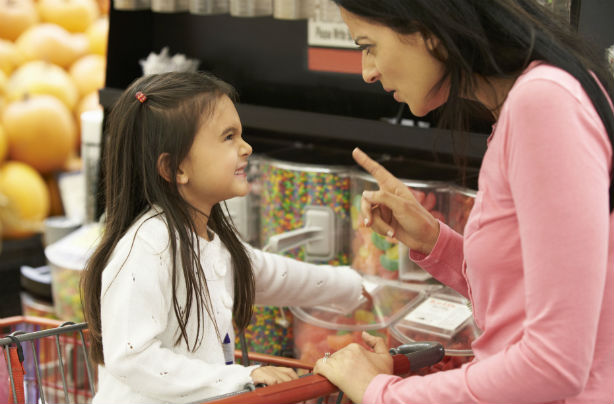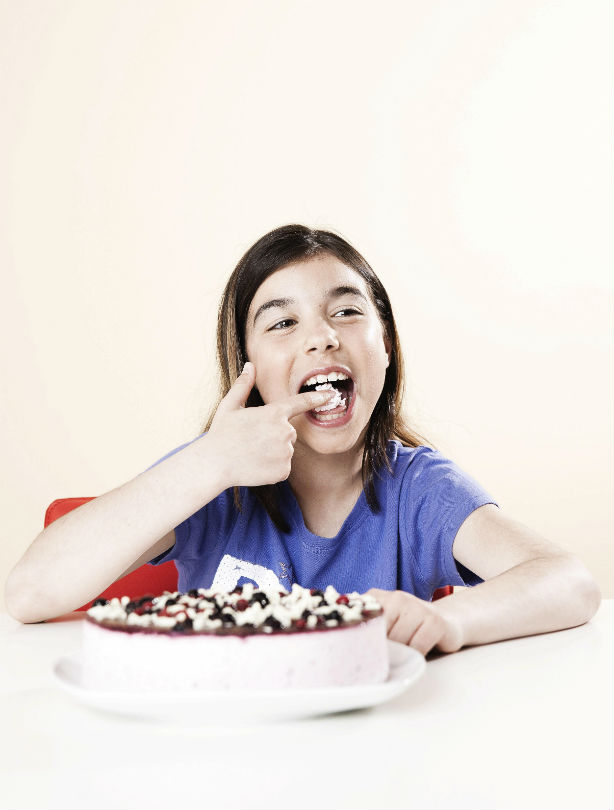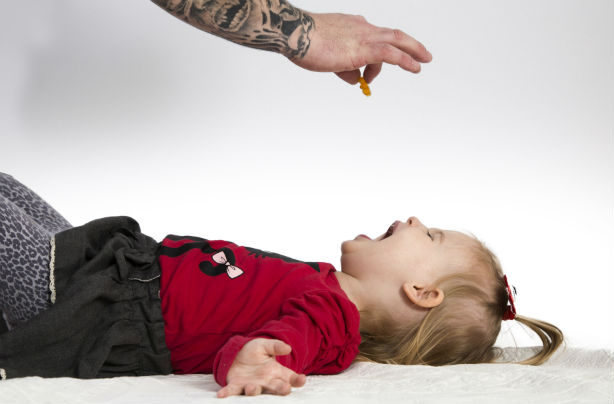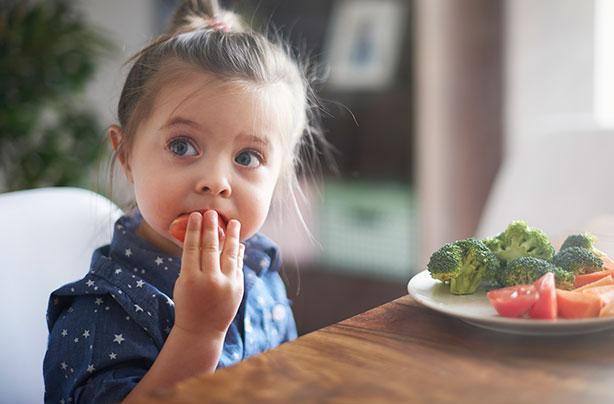Why you shouldn’t give your child their favourite treat when they’re sad
Research suggests that emotional eating is learned not inherited.

Many parents have turned to the sweetie jar to cheer up their children at some point, but researchers have warned this could lead to emotional eating in later years.
A new study carried out by University College London suggests that emotional eating is learned behaviour, and not inherited.
Researchers said this can be bad for children because it can become an ‘enduring trait’ that could continue throughout their life.
The main way in which is this is learned is when parents use food to soothe a child, or as a reward or to control their behaviour.

‘The advice to parents would be try not to use food to soothe your child. When they're upset, try to use other more positive strategies,’ said senior lead researcher Dr Clare Llewellyn.
‘It depends on the age of the child - but just sitting down and talking to them openly about how they're feeling and, with young children, giving them a cuddle.’
She added that emotional eating ‘indicates an unhealthy relationship to food’, and that parents should find ‘more positive strategies to regulate their emotions’.
GoodtoKnow Newsletter
Parenting advice, hot topics, best buys and family finance tips delivered straight to your inbox.
The study, which is published in Pediatric Obesity journal, looked at 398 four-year-old British twins from the Twins Early Development Study (TEDS).
Half came from families with obese parents, and half from parents with a healthy weight. All parents were asked to report on their children’s eating habits and their tendency to eat when sad or irritable.

The data was used to compare the identical and non-identical twins, but very little difference was found between the two which suggests environment has more of an influence rather than genes.
Dr Llewellyn went on to explain that emotional eating could also lead to eating disorders.
‘A tendency to want to eat more in response to negative emotions could be a risk factor for the development of obesity,’ she said.
‘And emotional over- and under-eating could be potentially important in the development of eating disorders such as anorexia nervosa or binge-eating disorder.
‘Understanding how these tendencies develop is crucial, because it helps researchers to give advice about how to prevent or change them, and where to focus future research.’

However, eating-disorder charity Beat says parents should not be blamed for their children's eating issues.
‘Eating disorders are complex mental illnesses and never have one sole cause,’ the charity said.
‘Previous research shows that some people's genetic make-up makes them more vulnerable to developing an eating disorder. And for these people, stress or emotional upset may act as a trigger.
‘It is important to remember that families often provide vital support for eating disorder sufferers. And this research should not prompt anyone to blame parents. Families need to be empowered to help their loved ones and given information about eating disorders and sources of support,’ they added.

There are many ways in which you can stop yourself from comfort eating, such as exercising, only eating in certain places and giving yourself an emotional eating mantra.
A new study from Wren Kitchens released this week explores the science and psychology behind eating patterns.
Eating psychology coach Sue Bradley has revealed her top five tips in order to avoid emotional eating for you and your child.
- Teach children to view food objectively - Don’t say they will love or hate anything before they eat it; let them make their own decisions.
- Learn to control your inner child - Take a deep breath and allow yourself the mental space to make the best decision for yourself.
- Stop assigning morality to food - There’s no such thing as ‘naughty’ or ‘nice’ food, so try not to wrap up feelings of guilt in what you’re eating.
- Let go of the past - If you’ve eaten a snack that you think you shouldn’t have had, don’t dwell on it, as the regret will make you crave a new reward through food.
- Notice what you’re eating - Rather than allowing yourself to mindlessly snack from a packet, consider setting up a portion for yourself, so you only eat what you want to eat.
Trusted, informative, and empathetic – GoodToKnow is the ultimate online destination for parents. At GoodtoKnow, our mission is 'simple': we're trying to make sense of parenthood. On the site, you'll find everything you need for a happy, healthy family life. Our huge archive of content includes more than 18,000 articles and 1,500 how-to videos. These include expert-backed advice features on parenting, dealing with relationship changes after having a baby, self-care for mums and managing your family finances. We also feature tried-and-tested product reviews and buying recommendations for every stage of family life - from prams and Moses baskets to birthday gifts and top toys.